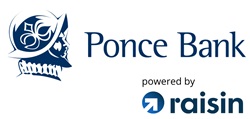Money market accounts are less flexible than checking accounts but more flexible than savings accounts, which is why they offer an interest rate that is higher than a checking account but often lower than a savings account. We delve into this more at the end of the article if you really want to know the differences.
What should you look for in a money market account? Pretty much the same as a savings account. You want a high-interest rate with low or no minimum balance, no monthly maintenance or service fee, and no excessive transaction fee.
| APY | Learn more | |
|---|---|---|
| 4.75% APY | Learn more | |
 | 4.20% APY | Learn more |
| 4.16% APY | Learn more | |
 | 4.00% APY | Learn more |
| 3.80% APY | Learn more | |
| 3.65% APY | Learn more |
Quontic Bank
- APY: 4.75% APY
- Minimum deposit: $100
- Monthly fee: $0
Quontic Bank is an online bank with an amazing money market account. It offers one of the highest interest rates out there, comes with a debit card and checks, and has no transaction limits. You could actually use this as your checking account and earn 4.75% APY on your checking.
The bank also offers a high-yield checking account, a cash rewards checking account, and a high-yield savings. So you could move all your banking to Quontic if you wanted to.
Here's our Quontic Bank review for more information.
Ponce Bank
- APY: 4.20% APY
- Minimum deposit: $1
- Monthly fee: $0
Ponce Bank was founded in The Bronx and has one of the highest interest rates available for a money market account – currently sitting at 4.20% APY.
They also offer a 3-month CD for 4.20% APY – all on the Raisin platform. They are FDIC insured so your funds are protected and there is a minimum opening deposit of just $1.
mph.bank
- APY: 4.16% APY
- Minimum deposit: $1
- Monthly fee: $0
mph.bank has a quirky name, but it is actually part of Liberty Savings Bank, so your funds are FDIC-insured. They offer a money market deposit account with an impressive 4.16% APY APY through the Raisin platform.
You can get started with just $1 and no monthly fees.
Blue Federal Credit Union
- APY: 4.00% APY
- Minimum deposit: $1
- Monthly fee: $0
Through the Raisin platform, Blue Federal Credit Union offers a money market account that earns 4.00% APY, with no fees and requires only $1 to get started.
The credit union operates in Colorado and Wyoming, but you don't need to qualify for the credit union to open an account via Raisin.
Go to Blue Federal Credit Union
Ally Bank
- APY: 3.80% APY
- Minimum deposit: $0
- Monthly fee: $0
I’m a big fan of Ally Bank, it’s the hub of my financial map, and where I keep my savings.
Ally Bank's money market account earns 3.80% APY while the online savings account is higher at 3.80% APY. Both accounts are similar in that they have no maintenance fees and remote deposit.
Here's our full review of Ally Bank for more information.
Discover Bank
- APY: up to 3.65% APY
- Minimum deposit:
- Monthly fee: $0
You probably know Discover mostly for their credit cards but Discover® Bank has some of the most competitive rates for banking products too. They currently offer a tiered rate where you can get 3.60% APY on balances under $100,000 on the Money Market account and 3.65% APY on balances over $100,000 for the Money Market Jumbo account.
There is no minimum balance, no monthly maintenance fee, and very few additional fees.
Member FDIC.
What is a Money Market Account
A money market account is a savings account that often has easier access than a traditional savings account. Depending on the bank, you may get a debit card or checks.
They often have higher minimum balances than savings accounts, although the ones on this list don't.
A good use for money market accounts is either as a savings account for your emergency fund, if you can get a higher interest rate than your regular savings, or as a savings account where you are using the funds for a specific purpose.
For example, if you are doing a home renovation project, you might contribute a regular amount to that project each month into the account, but then spend from it as the project goes along.
How to Choose a Money Market Account
You should look for a few key pieces of information. First, you should understand the interest rate and fees for each account. You'll also want to know if there are any transaction limits and what type of access you will have.
While some accounts offer checks and debit cards, others don't. So, if you'll need that sort of easy access, you'll want to ensure it has those features before signing up.
Money Market Accounts vs Savings Accounts vs CDs
Money market accounts, savings accounts, and CDs are all great ways to save your money, but each has a different purpose.
Savings accounts are great for your emergency fund and CDs are great for long-term savings that you know you won't need to access. While money market accounts are good for short-term savings, due to their easier access.
| Money market | Savings account | CDs | |
|---|---|---|---|
| Best use | Short term savings | Long term savings that you may need to access | Long term savings that you don't need to access |
| Interest rate | Similar to savings often lower than CDs | Similar to money markets, often lower than CDs | Usually the highest |
| Checks and ATM access | Often | Sometimes | No |
| Minimum account balance | Often higher than savings, but lower than CDs | Lowest | Highest |
| Early withdrawal penalties | No | No | No |



